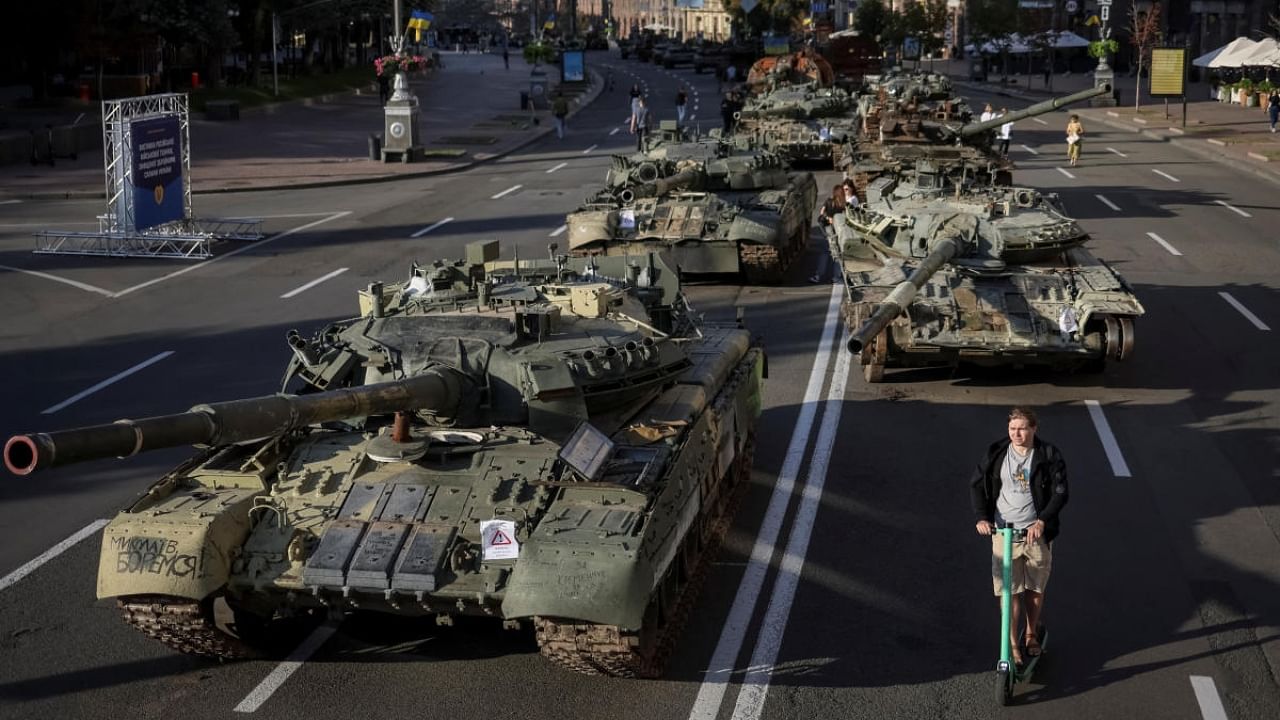
For some civilians in Ukraine’s eastern Donbas region, where wilted sunflower fields, debris-covered highways and the distant thud of artillery serve as the gates to the war’s front line, the country’s Independence Day on Wednesday means little.
“We have no news — nothing — we live in the darkness. What is going on out there?” asked Antolii, a shirtless resident of Paraskoviivka, a small salt-mining town in the province of Donetsk, where Russian troops have slowly taken territory in recent weeks.
That does not mean the 31st anniversary of Ukraine’s independence from the Soviet Union, marked August 24, is insignificant, and Ukrainian authorities have urged people across the country to be on guard, fearful that the Russians will launch a fresh set of attacks on civilians far from the front.
Curfews are in place, mass gatherings are restricted and some residents of big cities are told to stay home for the day.
But after six months of war, and Russia’s grinding campaign to capture the mineral-rich Donbas region, Wednesday is just another day on a calendar for many Ukrainian civilians on the front lines.
Cold winter shelters warmed with the approaching spring. The summer heat signaled treks to nearby wells for water. And the Russian artillery strikes got closer and closer as the Ukrainian military slowly lost ground.
“It’s been the same continuous shelling for weeks here, especially at nights,” said Antolii, who declined to give his last name, before offering a bag of tea to a pair of visiting New York Times reporters and wandering off.
Antolii’s town has been without water for a month and without electricity for two weeks. It is roughly 5 miles away from Russian positions.
Another man named Antolii in Paraskoviivka said the town had been celebrating Independence Day since 1992. “Nothing is going to happen,” he said. “We hope for the better.”
Nina Fedorivna, a woman in a nearby town, said plainly: “We have constant shelling going on here, round-the-clock, so it won’t be anything new if we’re shelled on Independence Day.”
Further south, roughly 2 miles from Russian positions in the small town of New York, which takes its name from the U.S. city, the smell of burning sunflower seeds filled the air. A factory where the seeds were stored was shelled Sunday and had been slowly burning since.
Svitlana, whose older family member was being evacuated by a group of volunteers called the BASE.ua, looked on as the man was loaded into a van already filled with other evacuees. When asked if she was worried about increased Russian attacks Wednesday, she shrugged, looking in the direction of the burning factory.
“We don’t know what’s going to happen,” Svitlana said quietly.